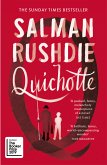Charlotte LennoxThe Female Quixote
Or, the Adventures of Arabella. in Two Volumes.
Andere Kunden interessierten sich auch für
Produktdetails
- Verlag: Creative Media Partners, LLC
- Seitenzahl: 296
- Erscheinungstermin: 27. Oktober 2022
- Englisch
- Abmessung: 234mm x 156mm x 16mm
- Gewicht: 417g
- ISBN-13: 9781017596908
- ISBN-10: 1017596905
- Artikelnr.: 67189117
Hinweis: Dieser Artikel kann nur an eine deutsche Lieferadresse ausgeliefert werden.
- Libri GmbH
- Europaallee 1
- 36244 Bad Hersfeld
- gpsr@libri.de
Charlotte Lennox (1730-1804) was a Scottish novelist, poet, and playwright. Born in Gibraltar to a British military officer and his wife, Lennox was raised in England before moving to Albany, New York, where her father served as lieutenant-governor until his death in 1742. At thirteen, Lennox was sent to live with her maternal aunt in London, but ultimately lived as a companion of Lady Isabella Finch due to her aunt's struggle with mental illness. In 1746, she began acting in civic dramas, public plays designed to address prominent social issues. With the publication of her debut collection of poetry, Poems on Several Occasions (1747), Lennox turned her attention to her career as a writer. Her most successful poem, "The Art of Coquetry," was published in Gentleman's Magazine in 1750, bringing Lennox to the attention of Samuel Johnson and his circle of literary friends. In 1752, her novel The Female Quixote was published to critical acclaim from Johnson and Samuel Richardson. Despite publishing anonymously, Lennox was known to be the author of the successful parody of Miguel de Cervantes' work, earning her a reputation as a leading author of the London literary scene. Although Lennox published several plays and two more novels, she ultimately failed to sustain her early success. After living for nearly a decade through the support of the Royal Literary Fund, Lennox died in London and was buried in an unmarked grave. In the twentieth century, leading feminist scholars rediscovered Lennox's work, in particular The Female Quixote, earning Lennox posthumous praise as an undervalued artist who managed to excel at a craft dominated by men.








